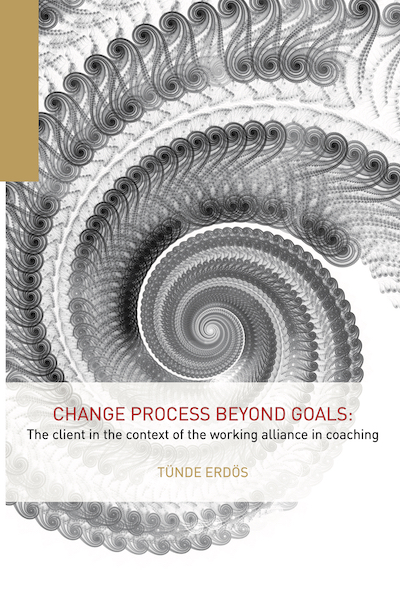Tünde Erdös
2021, ABRI dissertation series, printed by Haveka
What is the client’s role in the change process in coaching? Does working alliance strengthen / weaken or rather cause client’s growth and development? Most importantly, what is goal attainment really about?
This dissertation comprises two major investigative approaches: a) it looks into how client’s Big Five personality impacts on their authentic self-development over time; and b) how movement synchrony as a coach-client interpersonal process impacts on client’s goal-directed behavior. In both approaches, we explore how working alliance, client’s affect balance as well as client’s emotional and cognitive self-regulation influence these two associations.
We apply latest technology (MEA, motion energy analysis) to assess video-taped nonverbal interactions between coach and client and compare coded synchrony data with client’s perceived level of self-regulation and working alliance after each session. A pre-coaching questionnaire on the Big Five and a post-coaching questionnaire three months after completion of coaching measure client’s goal-directed behavior and authentic self-development.
Findings show that clients grow beyond goals through coaching. It is through process research that we can reveal how client characteristics influence their becoming a congruent self. Interaction processes reveal that movement synchrony helps and harms client’s self-regulation. Finally, contrary to current knowledge, working alliance appears to not cause outcomes in coaching.
Visit the university website to learn more about the researcher’s affiliation:
https://www.abri.vu.nl/en/events/phd-defenses/erdoes/index.aspx
